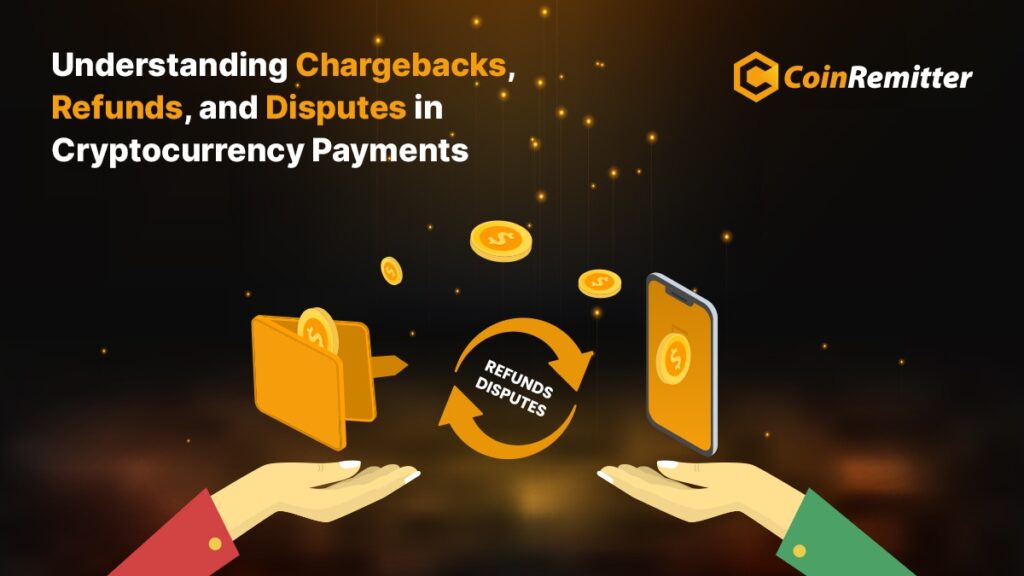Cryptocurrencies have given businesses a new way to accept payments. Compared to traditional payments, cryptocurrency payments are faster, more transparent, and more reliable. However, there are some major differences between crypto and traditional payments.
Businesses that want to accept crypto payments must learn about chargebacks, refunds, and disputes. Knowing them will help your business be reliable and trustworthy. Here, we will discuss all these aspects.
Managing Payment Challenges
Chargebacks
A chargeback happens when a buyer challenges a transaction. Such claims are common in traditional systems. It leads to the reversal of funds. This process is meant to protect customers from fraud.
However, transactions can also be challenged after a purchase is made. In this case, businesses may lose both products and payment. This is known as chargeback fraud.
A crypto transaction cannot be reversed once it has been confirmed on the chain. This means customers cannot request wallet providers to reverse transactions.
- No Auto-Reversals: Customers cannot request service providers to reverse their transactions.
- Reduced Fraud Risk: Chargeback fraud is a big issue with credit card payments. However, businesses no longer face it when they accept crypto payments.
- Customer Responsibility: Please note that mistakes cannot be undone with this payment method. So, business owners must instruct buyers to verify payment details.
Refunds
Crypto payments do not support chargebacks. However, business owners can still manually issue refunds. They can return funds directly to the customer’s wallet. Here are a few key points to keep in mind:
- Accurate Customer Wallet Details: To claim a refund, the customer must provide valid wallet details.
- Exchange Rate Impact: Many cryptocurrencies are volatile. Therefore, their value fluctuates over time. So, the refund amount may differ from the payment amount due to volatility.
- Refund Policies: Businesses have different refund policies. Business owners should mention them clearly to avoid any confusion.
Many business owners use our crypto payment gateway for refund management. It allows both incoming and outgoing transactions.
Disputes
Disputes can occur when a customer and a business owner disagree over a payment. Such disagreement may happen due to incorrect amounts, failed services, or delivery issues.
Cryptocurrencies do not have any central authorities like banks. Therefore, business owners have to handle disputes differently.
- Direct Communication: A business’s contact details must be published on its official website, so customers can reach out and resolve disputes.
- Proof of Transaction: Proof of a transaction is available on both the blockchain records and the wallet history of our crypto payment gateway. So, businesses can verify refund claims.
- Written Agreements: For high-value transactions, a written agreement must be in place between businesses and customers. You can also rely on email or chat confirmation. This ensures clarity and allows quick dispute resolution.
A clear dispute resolution process helps businesses maintain trust with customers.
Some Useful Tips
Businesses that accept payment in crypto can follow these tips to reduce misunderstandings and build trust:
- Transparent Policies: Write clear refund and dispute procedures on your official website.
- Use Payment Gateways: Rely on a cryptocurrency payment gateway with almost no downtime to avoid failed transactions.
- Keep Records: Save payment history to a separate folder.
- Monitor Transactions Carefully: Verify claims and payment history before issuing refunds.
- Educate Customers: Inform customers that crypto transactions are irreversible. Publish clear guidelines for claiming refunds.
Conclusion
Cryptocurrencies reduce the risk of chargeback fraud. However, they introduce challenges with refunds and disputes. Crypto transactions are not reversible. Therefore, issuing refunds and solving disputes depends on business owners. No cryptocurrency payment gateway can help solve them.
However, businesses can create policies and maintain transparent communication to benefit from crypto payments. When you accept crypto payments, you must understand chargebacks, refunds, and disputes. It ensures smoother transactions, reduces risks, and builds trust in digital payments.

